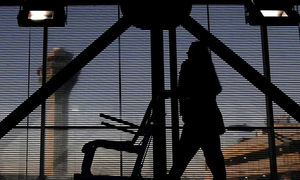 무슬림형제단이 이집트에 끼친 재앙적인 영향과 아랍의 봄 때 버락 오바마 행정부의 현명하지 못한 외교 결정에 관한 글이 많이 나왔지만, 이 두 가지는 이집트와 그 이웃 나라들을 위협하는 더 큰 몇 가지 근본문제의 단순한 부산물에 불과하다.
무슬림형제단이 이집트에 끼친 재앙적인 영향과 아랍의 봄 때 버락 오바마 행정부의 현명하지 못한 외교 결정에 관한 글이 많이 나왔지만, 이 두 가지는 이집트와 그 이웃 나라들을 위협하는 더 큰 몇 가지 근본문제의 단순한 부산물에 불과하다.
이런 근본문제를 더 잘 이해하기 위해서는 이집트를 보다 넓은 전략적 관점에서 살펴보고 경제, 인구과밀, 문맹률, 지리적 위치 같은 핵심 요인을 논의할 필요가 있다. 이런 요인들은 그 동안 대부분 언급에서 빠졌다.
면적이 엄청난 사하라 사막 지역을 제외한 이집트의 국토는 사람이 거주 가능한 나일강 계곡과 삼각주 지역뿐이다. 이 좁은 지역에 8000만명의 인구가 거주하며 성인 인구의 근 30%가 문맹이다. 여기에 하루 2달러로 살아가는 인구가 전체의 40%이고 17%로 추산되는 사람들이 굶어죽을 위기에 처했다.
이집트인들은 자기네가 5000년 전부터 2500년 전 사이에 세계에서 가장 위대한 문명을 건설했다고 자부한다. 지금 그들은 자기네가 왜 이렇게 되었는지 의아하게 생각한다. 여자들을 대대적으로 억압하는 극우 종교를 믿는 이집트인들은 자기네가 서방 주도 세계화의 피해자라고 생각한다. 끝으로 그들은 자기네 종교의 대의명분에 따른 순교를 찬양한다.
미국의 한 지역이 이런 상황에 처했다면 지방정부는 사지절단 환자처럼 무기력하여 주민을 통치하는 것이 사실상 불가능할 것이다. 한 사람의 일생 동안 인구가 2000만명에서 8000만명으로 증가한 이집트가 지금 그런 현실에 처해 있다. 이집트를 유지시킨 것은 지난 수십년 동안 미국이 제공한 거액의의 군사·경제 원조다. 이런 원조가 이집트와 이스라엘의 네 번째 전쟁을 막았다.
무바라크 실각 후 서방의 순진한 언론의 도움 아래 판도라의 상자가 열렸다. 타르히르 광장에 특파원을 파견한 서방의 주류 언론 매체들은 경험이 부족한 오바마가 근시안적인 정책 결정을 내리도록 부추겼다. 미국이 무바라크를 성급하게 버리고 새로운 총선을 촉구한 결과 이슬람 우월주의 세력인 무슬림형제단이 정권을 잡은 것은 당연했다.
무슬림형제단은 이집트를 1년 동안 통치하면서 기회 있을 때마다 민주적인 제도를 해체했고 이슬람 율법인 샤리아에 기초한 헌법을 만들었으며, 대통령인 무함마드 무르시를 사법부 위에 올려놓았다. 그들은 콥트파 기독교인들을 공개적으로 박해하는 것도 눈감아 주었다. 이런 조치가 취해지는 가운데 주가는 폭락했고 휘발유와 전기, 식료품이 부족해졌다. 이는 관광수입이 급격히 줄고 해외투자가 고갈된 결과였다. 상황이 이렇게 되자 이집트 국민들이 볼 때 무슬림형제단이 갈 길은 분명해졌다. 더 큰 피해가 나기 전에 군부가 개입하여 무르시와 이슬람주의 측근 세력을 제거한 것은 다행이었다.
오늘날 이집트가 당면한 핵심 문제를 식별하고 나라를 바로잡을 수 있는 방법을 이해하는 열쇠가 여기서 제시된다. 안보와 긴밀하게 연결된 이집트의 근본 문제는 경제적 자유의 결핍이다. 무바라크 통치 때 억압받은 경제의 자유는 지금 훨씬 위축되었다. 이런 상황이 기업 활동을 질식시키고 창업과 일자리 창출을 방해하여 국제시장에서 성공하는 것을 막았다.
미국은 이집트의 국가 건설에 개입하지 않는 가운데 서유럽과 사우디아라비아, 페르시아만 국가들과 협력하여 이집트의 경제 여건을 개선시켜 이스라엘과 평화를 유지하도록 유도할 필요가 있다.
JD 고든前 미국 국방부 대변인
워싱턴타임스·정리=오성환 외신전문위원
By J.D. Gordon
Much has been written about the Muslim Brotherhood's disastrous influence in Egypt and the Obama administration's unwise foreign-policy decisions throughout the Arab Spring, but both are merely byproducts of larger underlying problems that threaten Egypt and its neighbors.
To better grasp these problems, it might be useful to look at Egypt from a broad, strategic view and discuss key factors of economics, population density, literacy and geography that have been mostly absent from the dialogue.
For the sake of comparing Egypt's land area, apart from an immense swath of the Sahara Desert, the inhabitable section consists of the Nile Valley and Delta, which fans out into the Mediterranean Sea. At roughly 10,000 square miles, it is about the size as Massachusetts.
Picture the Bay State with more than 80 million people, instead of more than 6 million. Next, imagine nearly 30 percent of the adults are illiterate. Throw in 40 percent living on less than $2 a day, with an estimated 17 percent in danger of starvation. Egyptians remind themselves they were the world's greatest civilization 2,500 to 5,000 years ago, and they wonder what happened. Now they follow an ultraconservative religion that oppresses women on a massive scale, they see themselves as victims of Western-dominated globalization, and finally, they glorify martyrdom for the cause.
Under such circumstances, Massachusetts would be a basket case and practically ungovernable.
Yet that's the reality Egypt faces as the population has swelled from 20 million to 80 million during one lifetime.
It was somewhat miraculous that former President Hosni Mubarak and Egypt even managed to stay afloat, thanks in large part to more than $30 billion in U.S. military and economic aid over the past several decades, effectively restraining the Middle East's cultural leader from leading a regional war with Israel for a fourth time since 1948.
Pandora's Box was pried open with Mr. Mubarak's ouster and the help of a woefully naive Western media establishment reporting from Cairo's Tahrir Square, pushing an inexperienced Team Obama into making shortsighted policy decisions. With the dumping of Mr. Mubarak and the hasty call for new elections, it's no surprise that the supremacist Muslim Brotherhood took over.
Having ruthlessly survived as an outlawed terrorist organization for about 80 years, the Muslim Brotherhood was the only organized political force with a ground game to get out the vote. It promised the most benefits and appealed to something familiar - a devout adherence to Islam. A Pew Global Attitudes Survey in 2010 showed that 60 percent of Egyptians identified with Islamists. The notion that they would replace Mr. Mubarak with a religious extremist in a general election was a no-brainer.
The Muslim Brotherhood ran the country for a year - dismantling democratic institutions at every turn, drafting a new Constitution based on Shariah law, placing President Mohammed Morsi above the courts, and turning a blind eye to open season on Coptic Christians. The combination of these measures with a crashed stock market and shortages of gas, electricity and food as tourism and investment dollars dried up made it apparent to Egyptian masses that the Muslim Brotherhood had to go.
Fortunately, the military stepped in and took out Mr. Morsi and his Islamist inner circle before more damage was done - replacing them immediately with more secular civilian authorities who actually know something about the economy.
This brings us to identifying the core problems facing Egypt today and how to get the country back on track. Intricately linked to security - a key challenge as displaced Islamists resort to terrorist tactics enraged by their ouster - the country's fundamental problem is the lack of economic freedom. Though it was bad under Mr. Mubarak, it is now far worse.
According to the Heritage Foundation's Economic Freedom Index, Egypt ranks No. 125 in the world, and 13th of 15 in the Middle East/North Africa. It suffers from widespread corruption, lack of government and corporate transparency, weak institutions, regulatory inefficiency, and appallingly low trade and investment freedom.
These conditions have stifled entrepreneurial activity, hurt business development, blocked job creation and prevented Egyptians from achieving success in the global marketplace.
Though the U.S. government should not engage in nation-building, it can work with partner countries - particularly in Europe, Saudi Arabia and the Gulf states - to keep the military in business in exchange for maintaining peace with Israel, while restoring basic security so that economic conditions can improve. Civil society can and should play a role as well, with think tanks and nongovernmental organizations advising and assisting Egyptian policymakers on how they can better serve their constituents.
It may take some time, yet fixing Egypt's economic-freedom indicators is essential before general elections are held again. Elections on some artificial timetable for the sake of democratic appearances are not advisable. The country is just not ready.
Without solving the underlying core problems, Egypt would revert to the same dysfunction that resulted from voting for whatever group, extremists or otherwise, that promises the most and has the best political machine. Let's remember, Rome - or Egypt, for that matter - wasn't built in a day.
[ⓒ 세계일보 & Segye.com, 무단전재 및 재배포 금지]
![[설왕설래] 독일 대통령의 ‘케밥 외교’](http://img.segye.com/content/image/2024/04/23/128/20240423518924.jpg
)
![[데스크의눈] 노인을 위한 나라는 없다](http://img.segye.com/content/image/2024/02/27/128/20240227519474.jpg
)
![[오늘의시선] 22대 국회가 지구를 위해 해야 할 일](http://img.segye.com/content/image/2024/02/29/128/20240229519542.jpg
)
![[안보윤의어느날] 사람을 기다리는 사람](http://img.segye.com/content/image/2024/02/13/128/20240213515568.jpg
)








